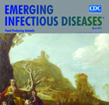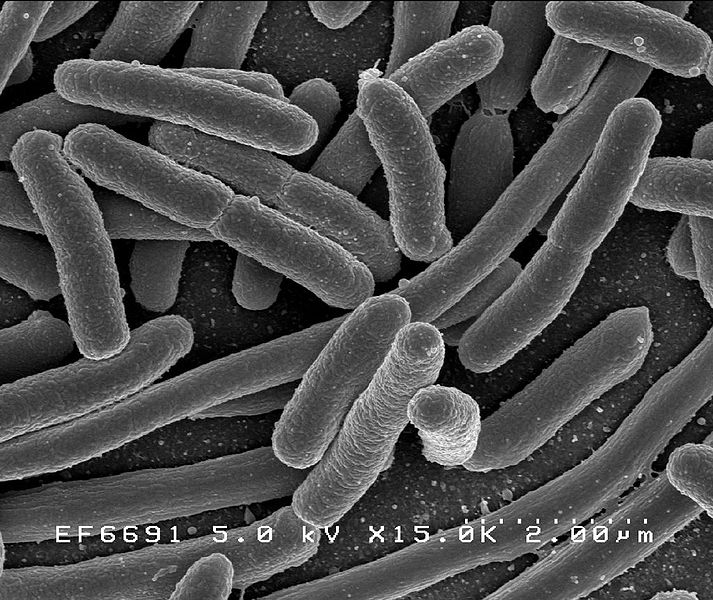Enteric Diseases Laboratory Branch
 CDC Feature: PulseNet & Foodborne Disease Outbreak Detection
CDC Feature: PulseNet & Foodborne Disease Outbreak Detection
Since 1996, PulseNet has connected foodborne illness cases together, using DNA "fingerprinting" of the bacteria making people sick, to detect and define outbreaks… More
 CDC Works For You 24/7: PulseNet at Work: Detecting Hazardous Hazelnuts
CDC Works For You 24/7: PulseNet at Work: Detecting Hazardous Hazelnuts
They're usually in bowls of mixed nuts that are a holiday staple. But for 8 people who lived in Michigan, Wisconsin, and Minnesota, the 2010 holidays weren't so merry… More
 Emerging Infectious Diseases: Nonculture Diagnostic Tests for Enteric Diseases
Emerging Infectious Diseases: Nonculture Diagnostic Tests for Enteric Diseases
Volume 18, Number 3—March 2012, Timothy F. Jones (Tennessee Department of Health) and
Peter Gerner-Smidt (CDC)
More

CDC's lead group for the use of molecular subtyping in the national and international surveillance of foodborne infections
Activities
- Managing PulseNet—helping all states to detect, investigate, and control outbreaks
- Partnering with reference laboratories throughout the world
- Building capacity for molecular surveillance of foodborne infections
Over the last decade, PulseNet a CDC-coordinated network of 75 laboratories in the United States and 82 countries around the globe, share standardized methods of “DNA fingerprinting” microbial pathogens and centralized databases to rapidly identify clusters of disease. This technology has resulted in a reduction in the incidence of foodborne disease through an increased number of outbreaks being detected.
Analyses conducted by local, state, and federal health and regulatory agencies are shared through a common IT and communication infrastructure, with a central database at the CDC. Each year in the United States:
- 50,000—60,000 pulsed-field gel electrophoresis (PFGE) patterns, or DNA “fingerprints,” from bacterial pathogens isolated from human, animals, food, water, or environmental sources are uploaded annually to local databases and the central server at CDC
- 1,200 clusters of disease are identified by state and local health agencies
- 250 multistate or national clusters are followed by CDC and regulatory partners
- 10—15 multistate or national outbreaks are identified, and control strategies developed
Since the inception of PulseNet in 1998, PulseNet-triggered investigations have resulted in:
- The recall of over 500,000,000 pounds of contaminated food from the marketplace
- Identification of numerous foods not previously recognized as significant vehicles of infection, such as peanut-containing products, leafy green vegetables, frozen entrees, dry cereal, nonintact steak
- Identification of lapses in food safety by individual producers that would have otherwise escaped detection, such as those in the egg and meat industries
- A 33% reduction in listeriosis infections, stimulated by efforts by the processed meat industry to reduce contamination in response to increased recognition of the origin of infection and resulting regulatory changes.
We provide expert identification and laboratory-based disease surveillance for agents of foodborne and diarrheal diseases and pathogen identification and characterization at the state, federal and international levels through reference identification consultation and training. This is performed through pulsed-field gel electrophoresis (PFGE) on bacteria has significantly advanced food safety by identifying problems in food and water supplies which previously went undetected. PulseNet-triggered investigations prevent ongoing transmission of disease through recalls and public notices, but more importantly PulseNet data help prevent future outbreaks by stimulating industry change and regulatory focus. We are organized in teams covering antimicrobial resistance, botulism, national enteric reference laboratory and diagnostics, PulseNet USA, and PulseNet International.
Contact Us:
- Centers for Disease Control and Prevention
1600 Clifton Rd
Atlanta, GA 30333 - 800-CDC-INFO
(800-232-4636)
TTY: (888) 232-6348
24 Hours/Every Day - cdcinfo@cdc.gov


